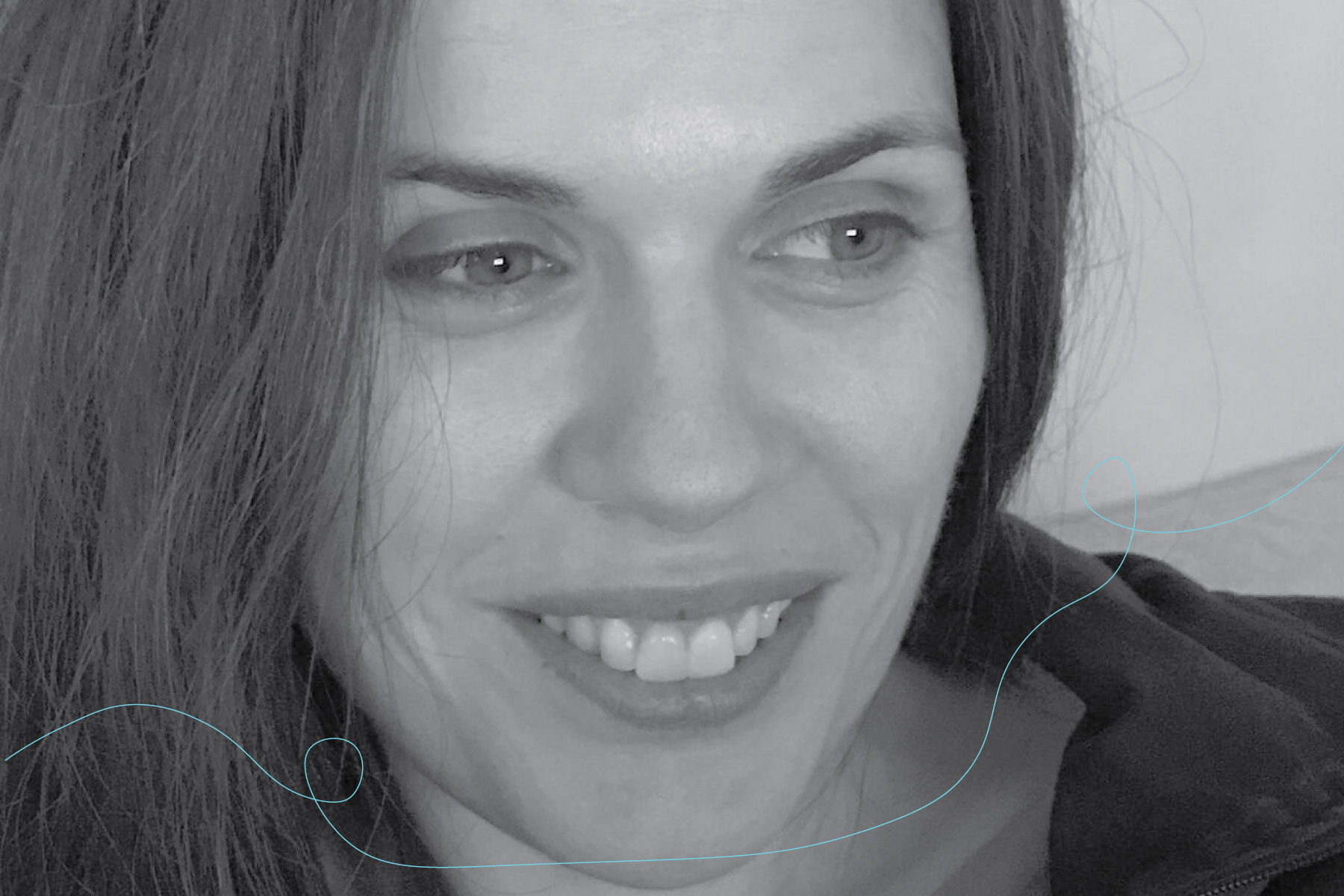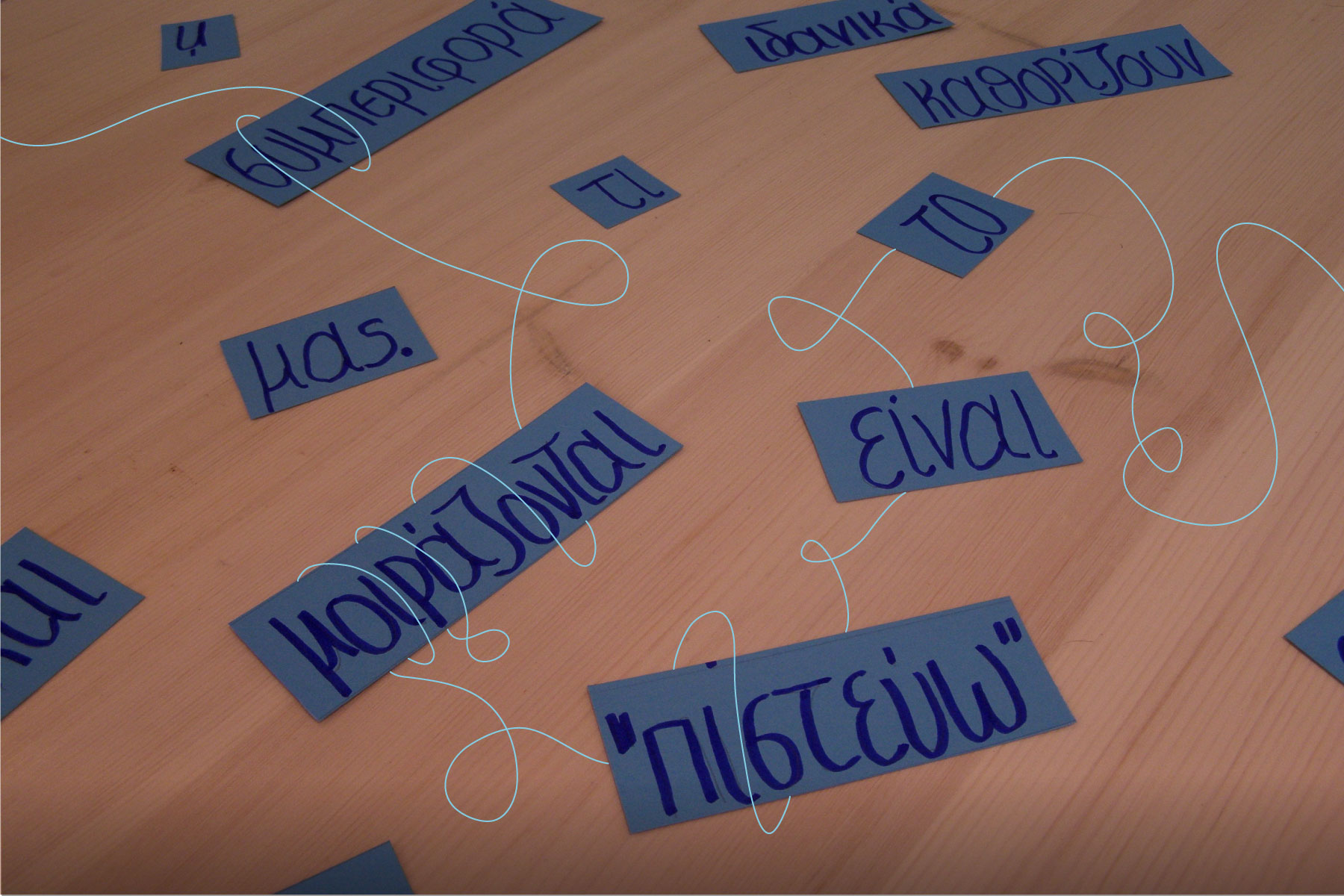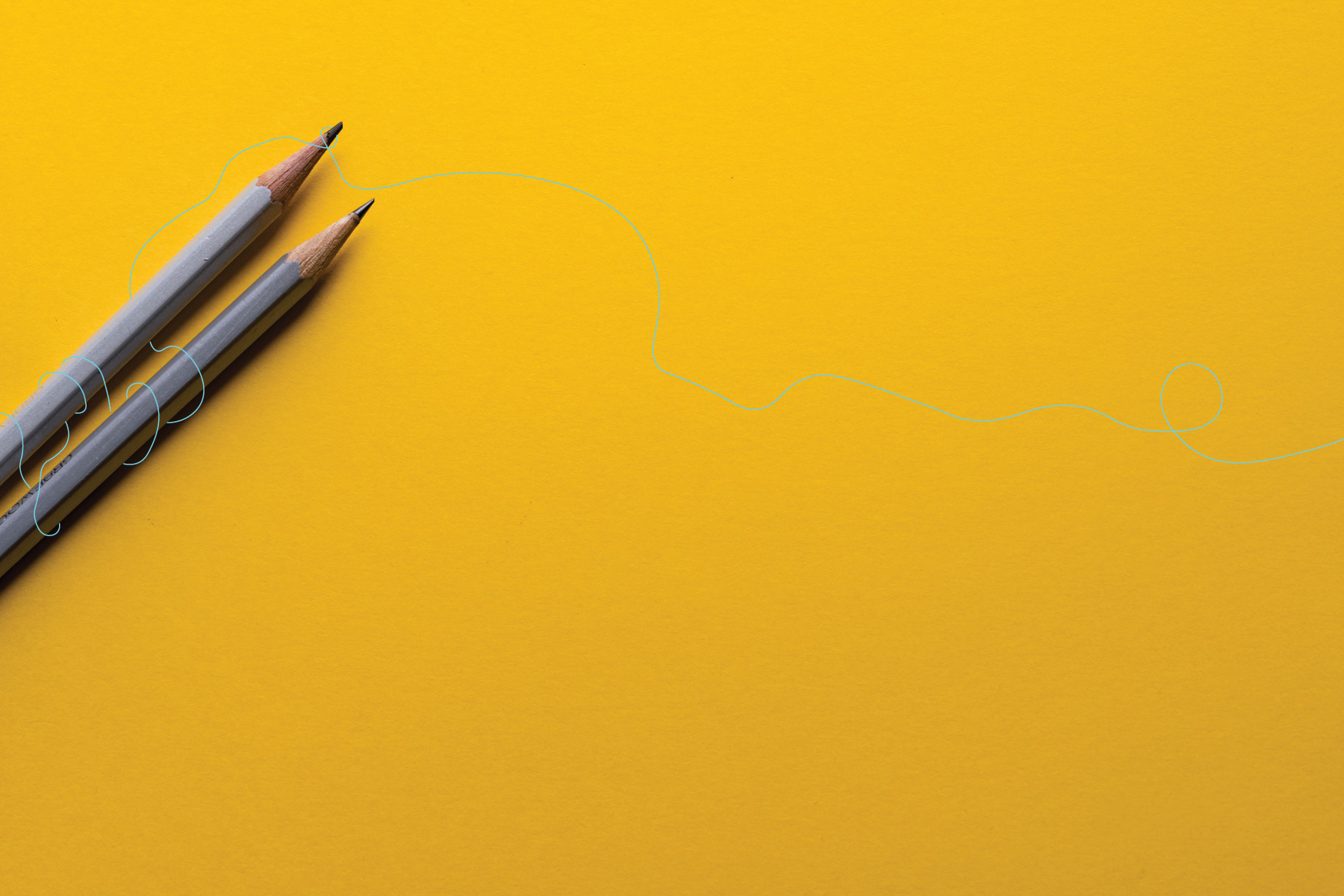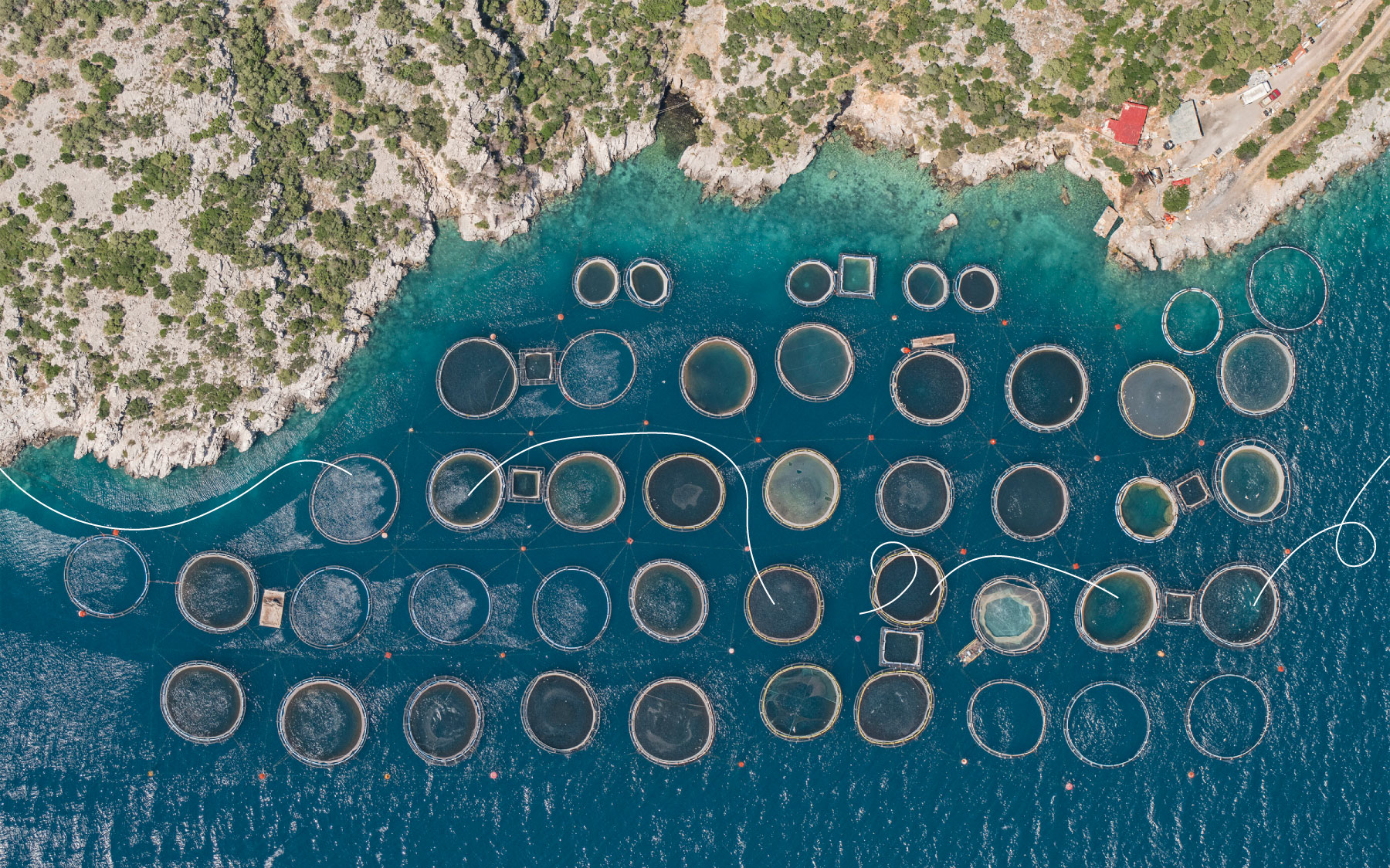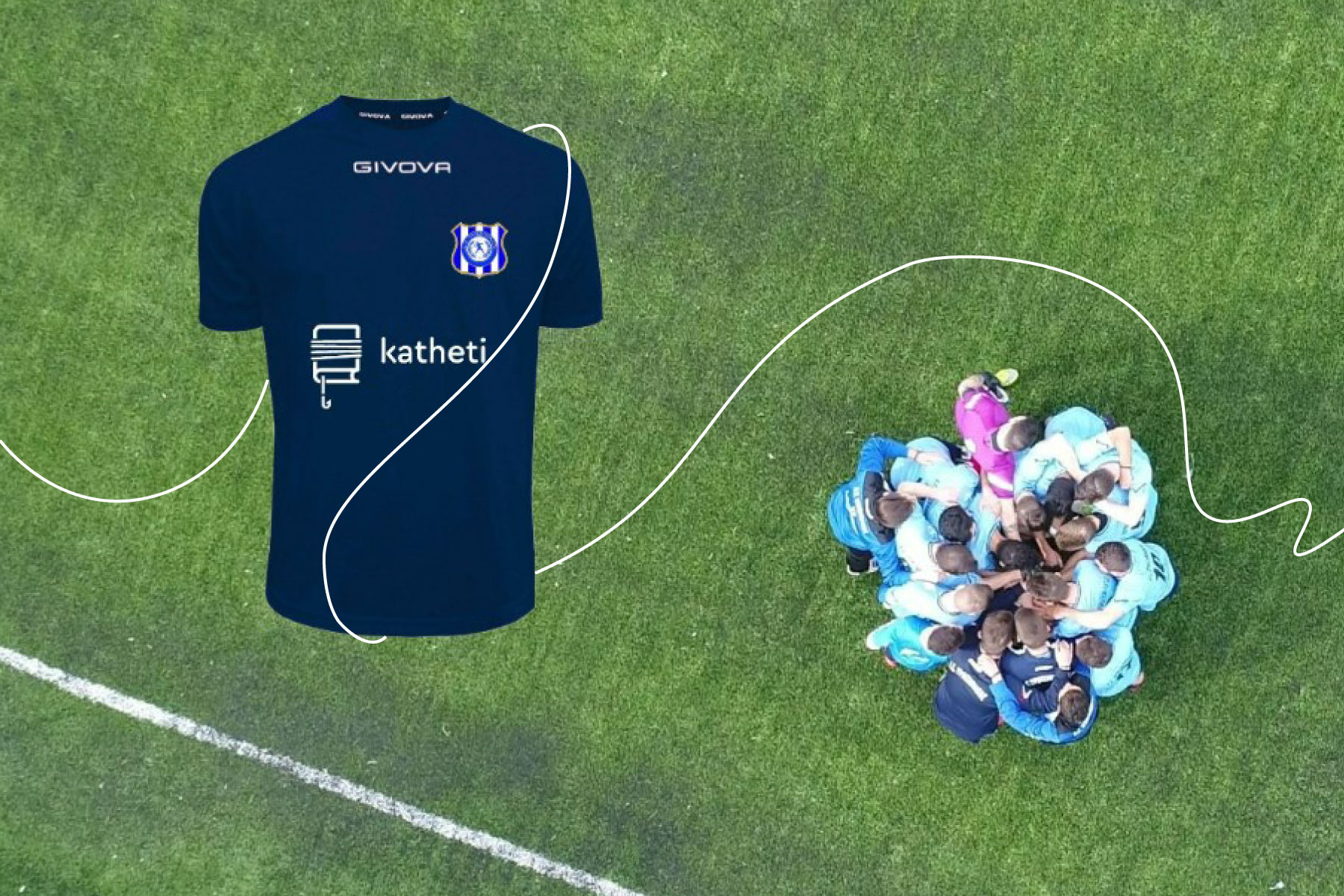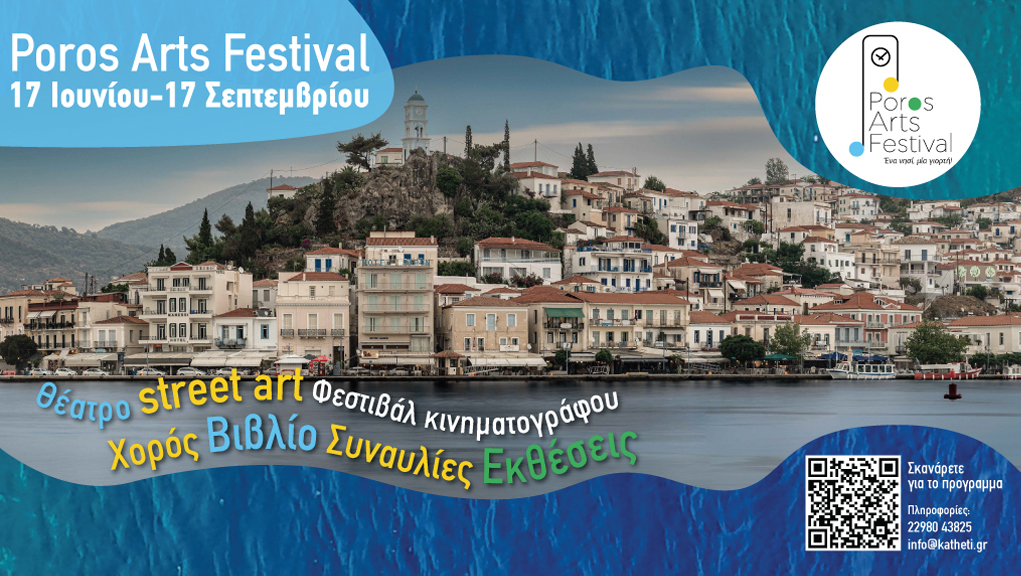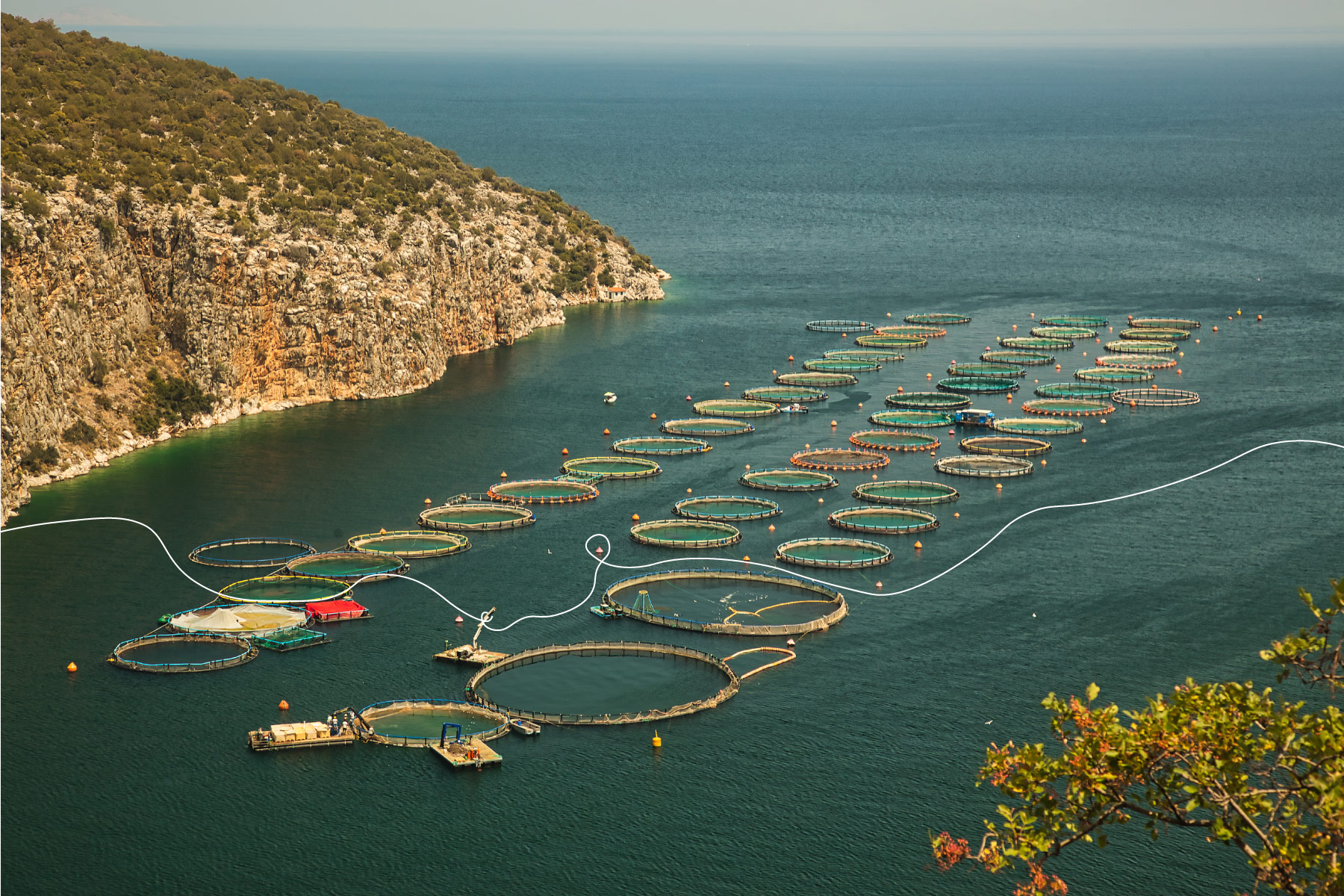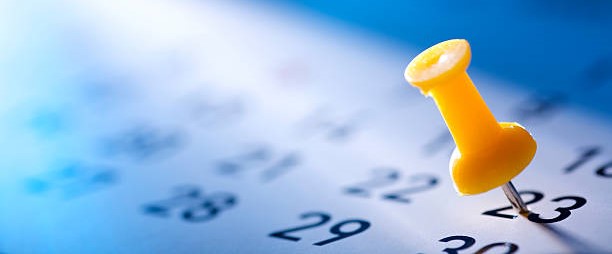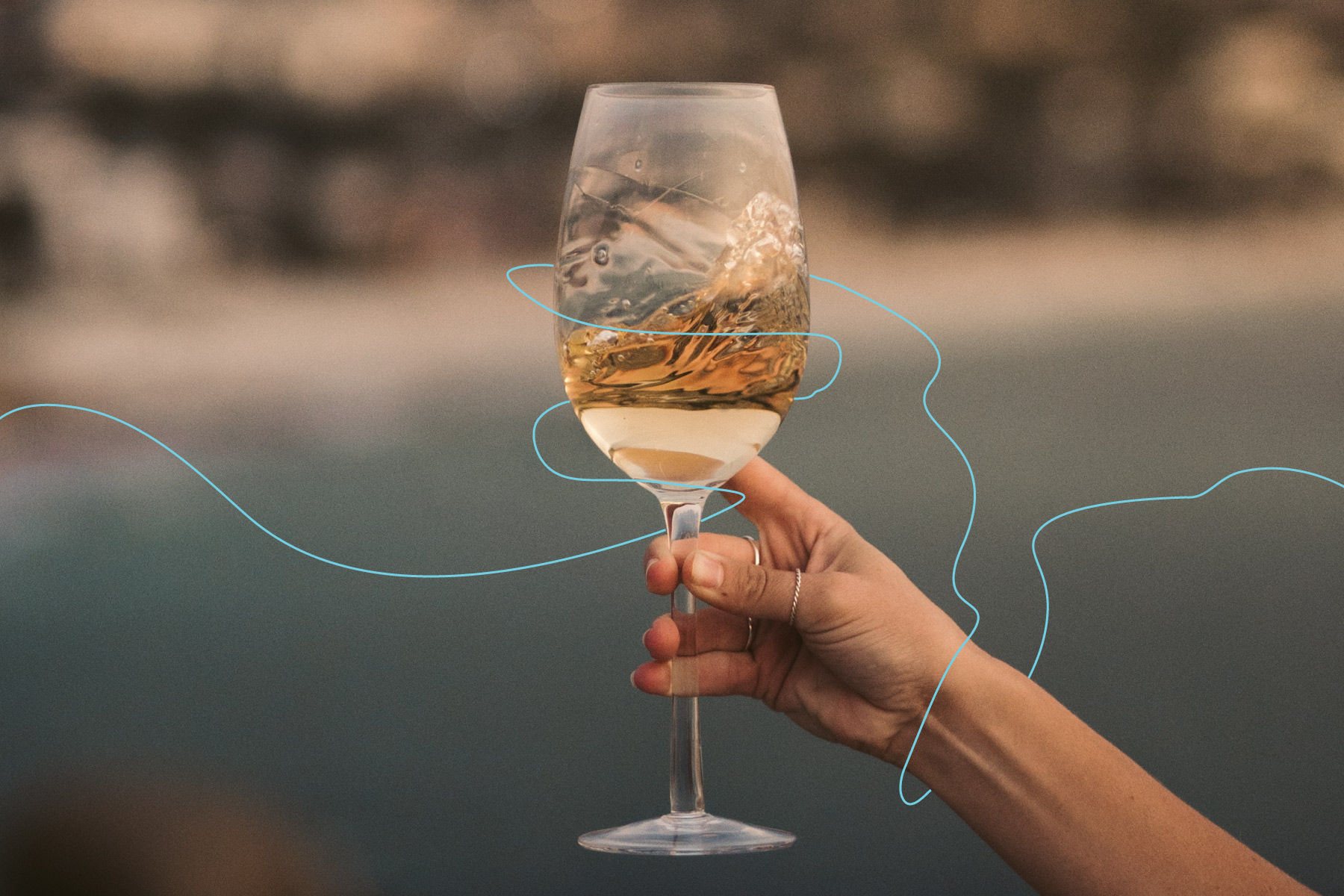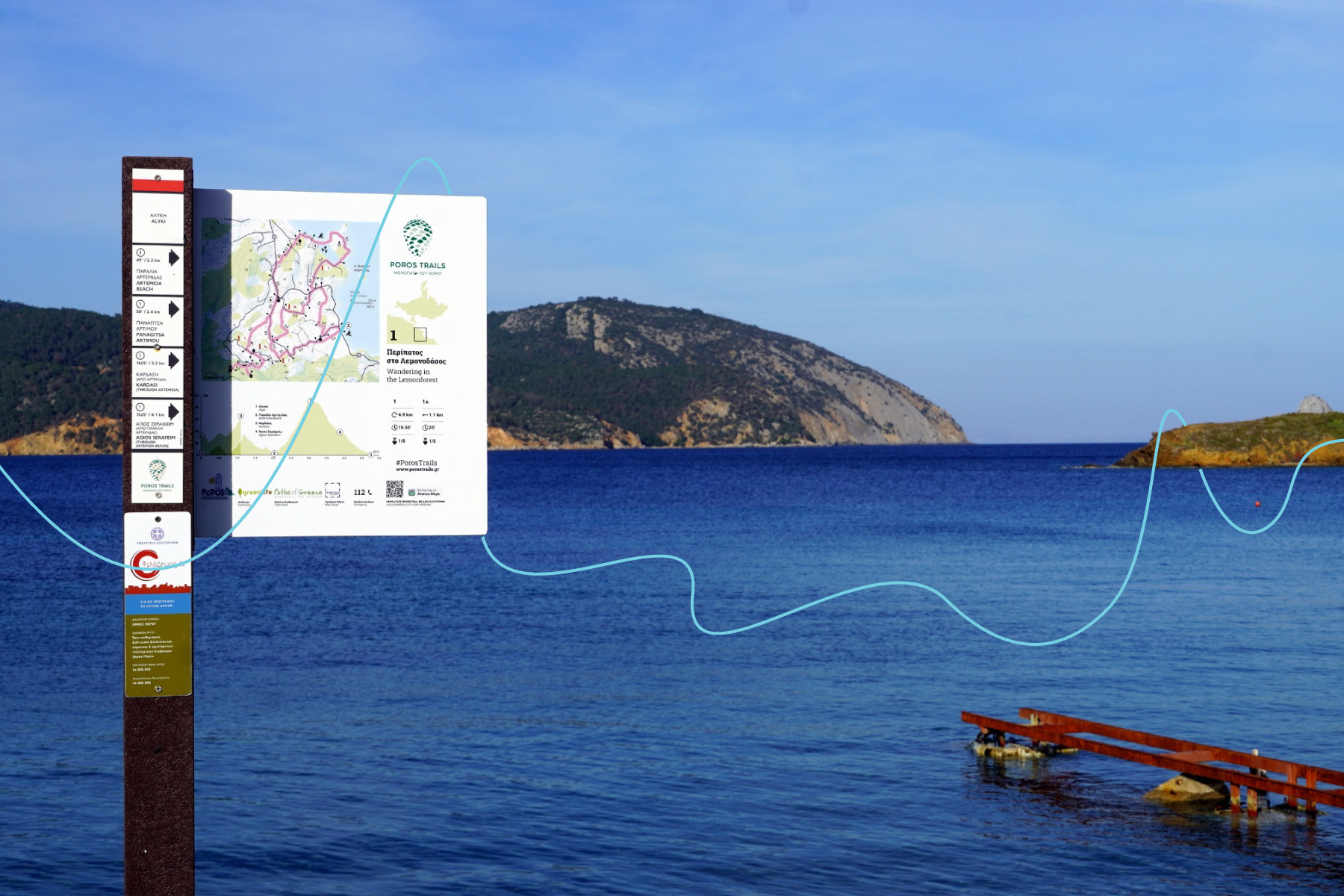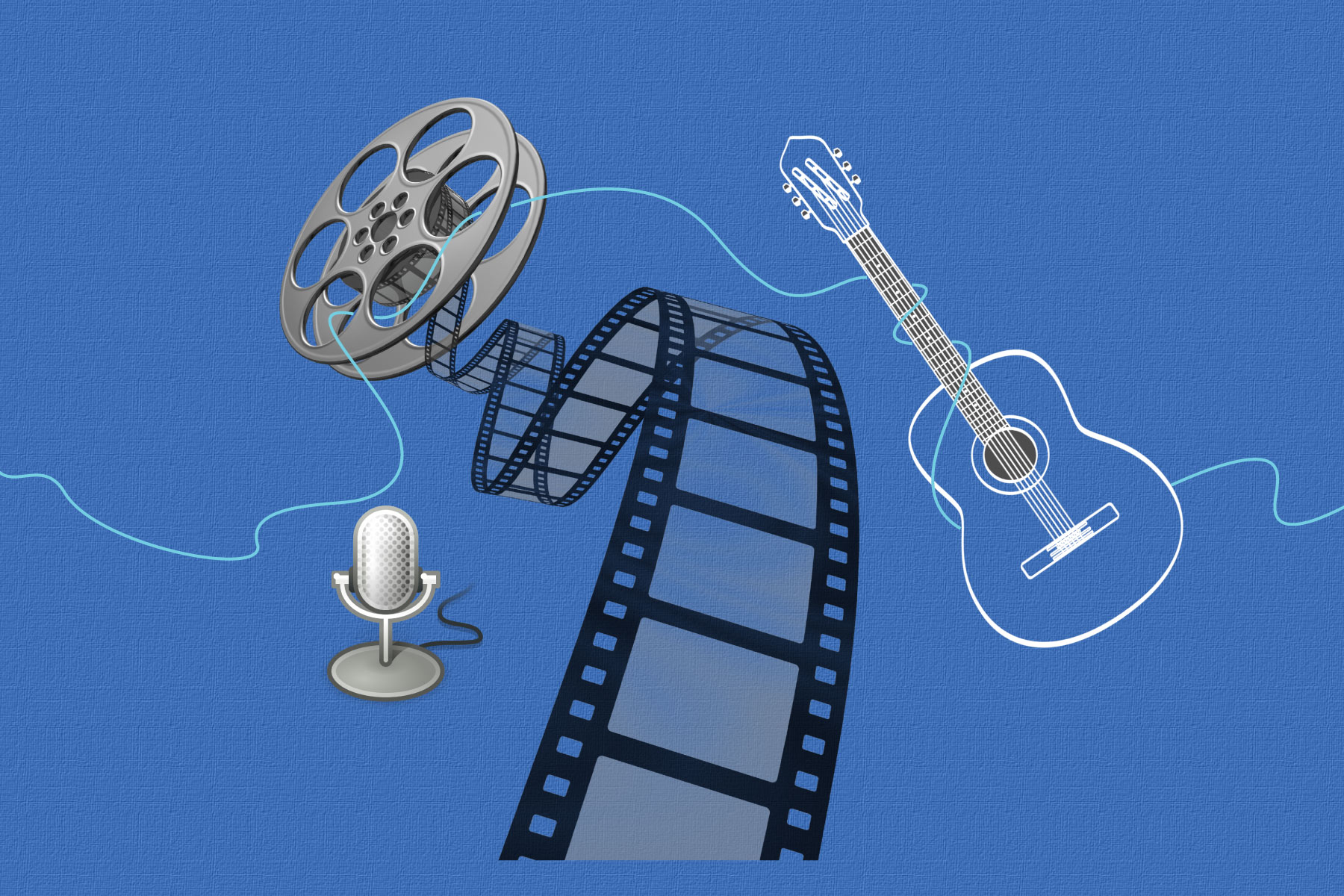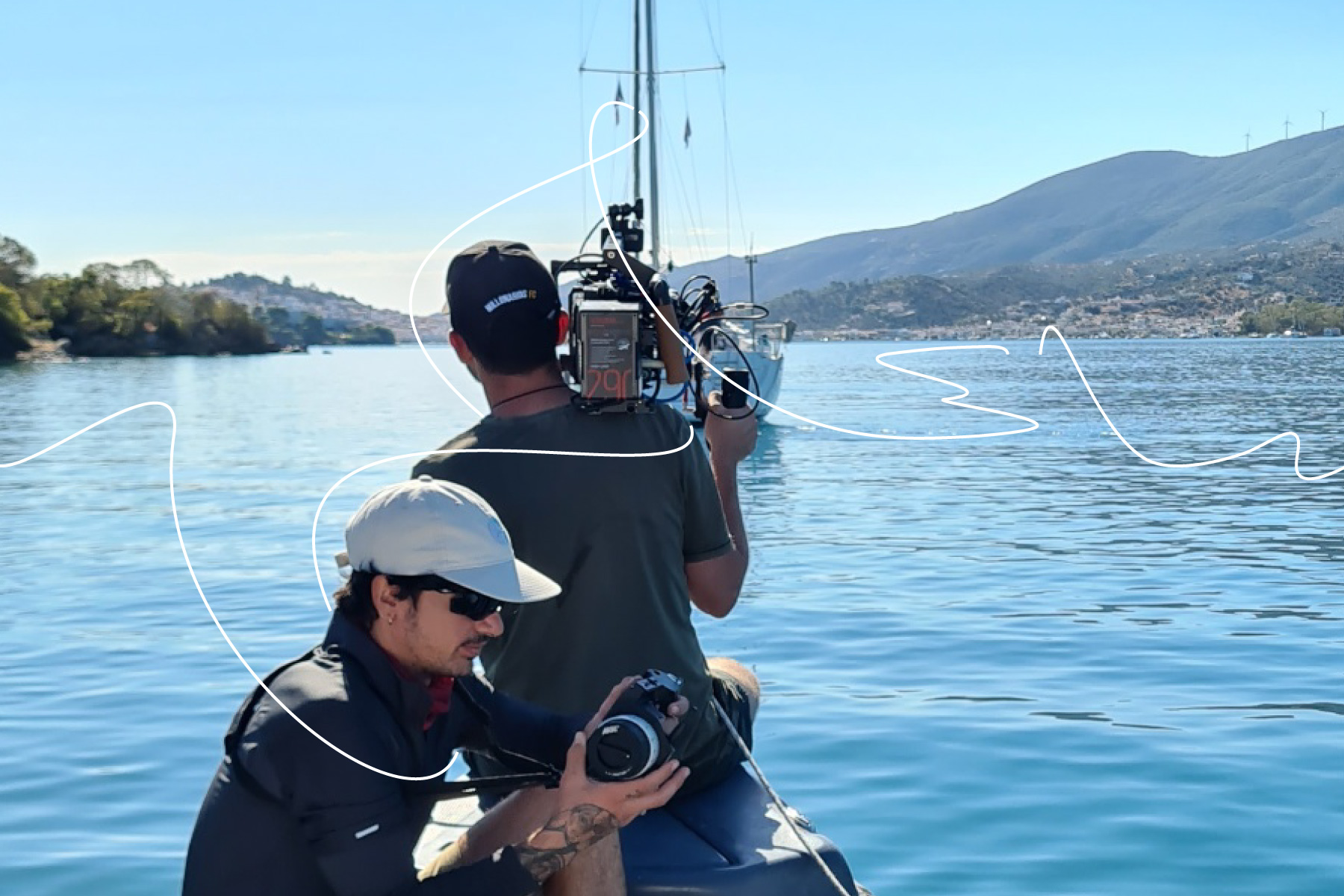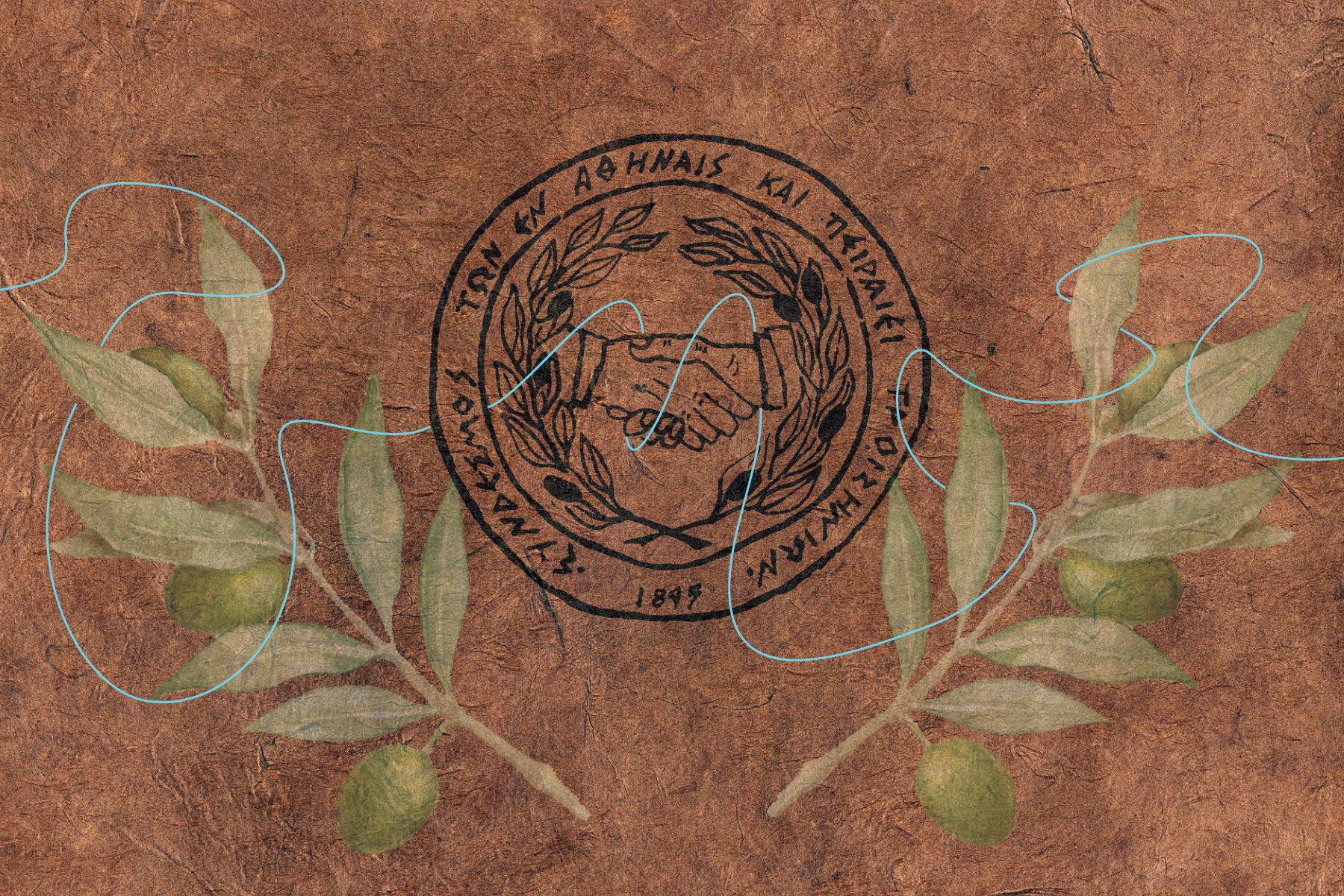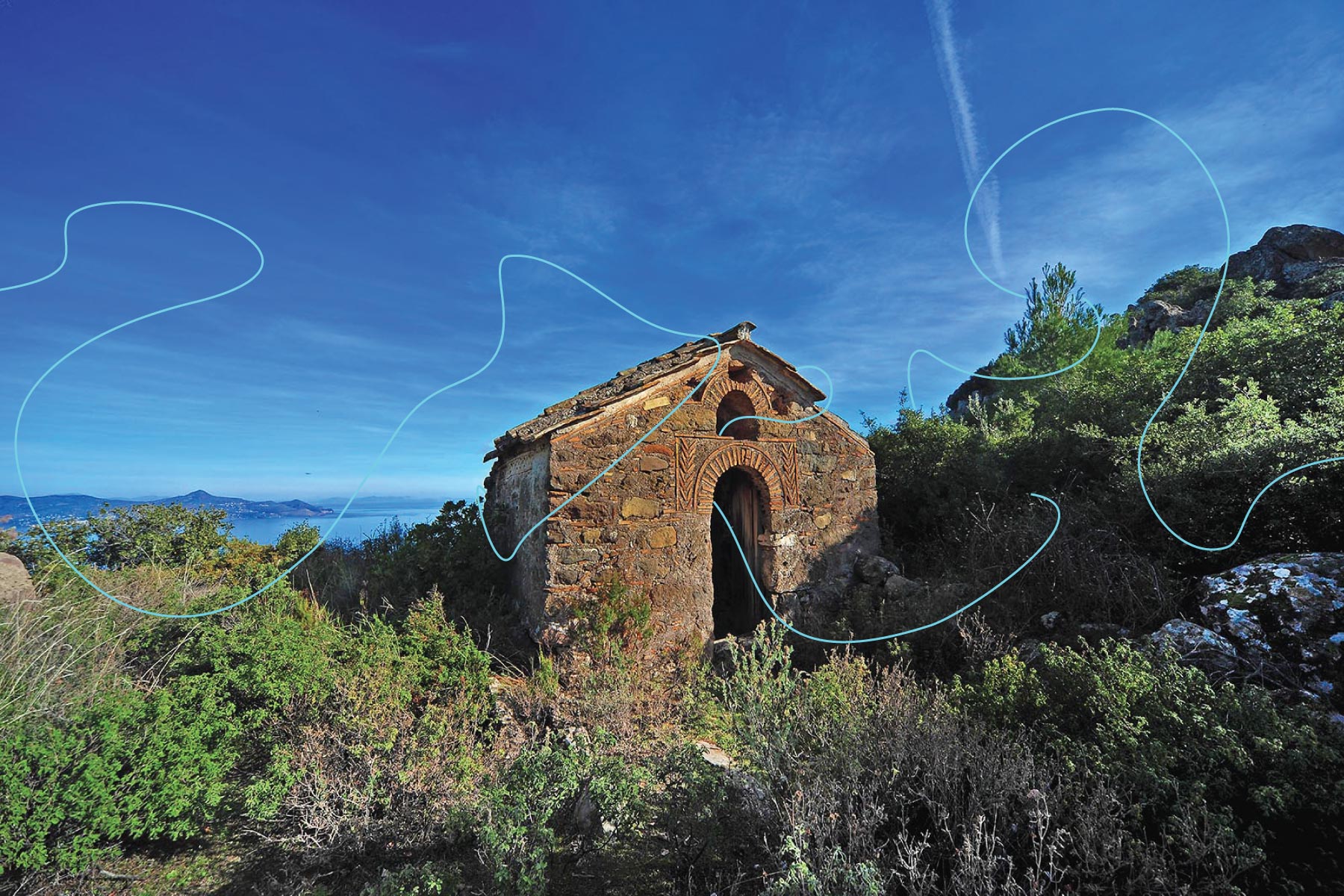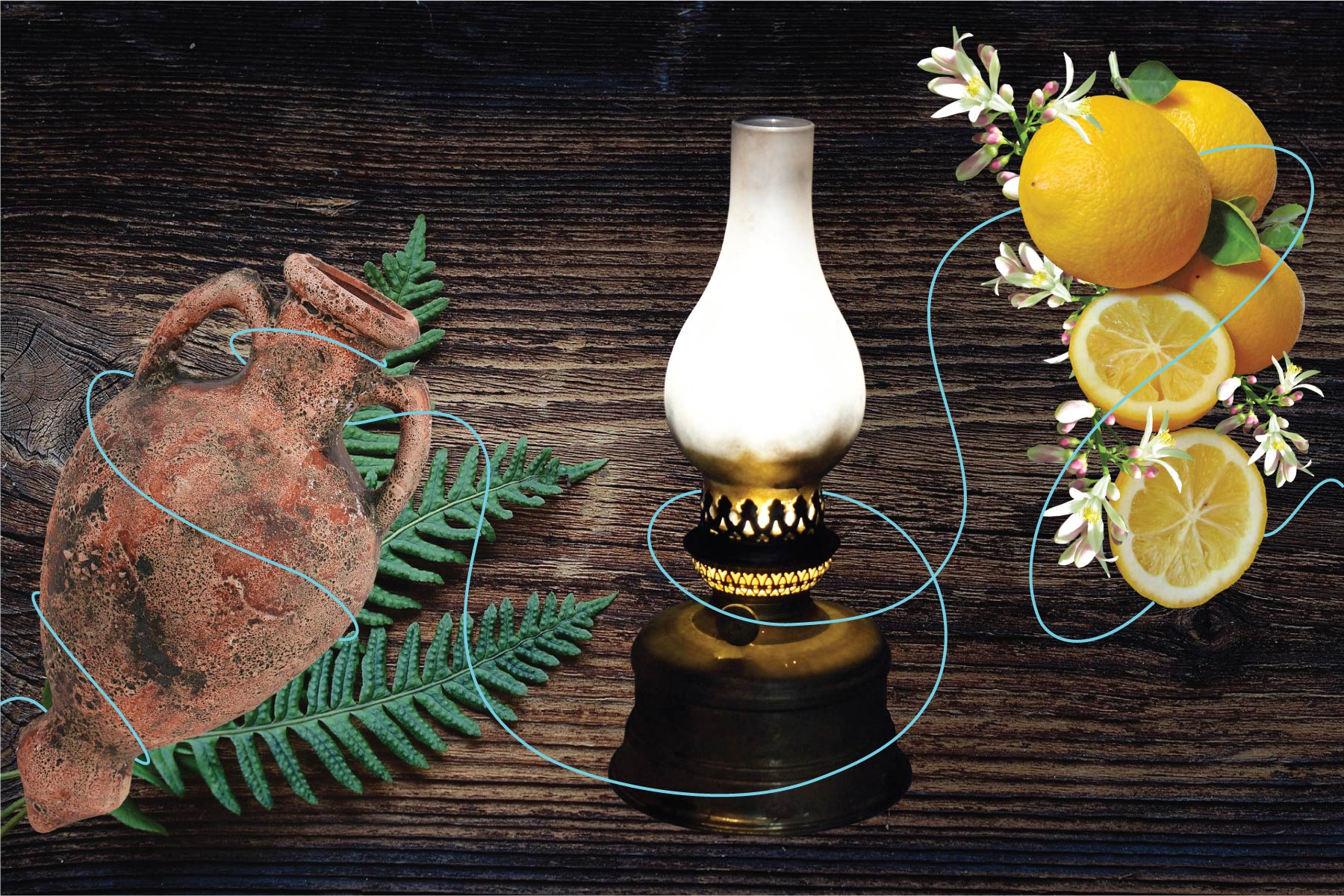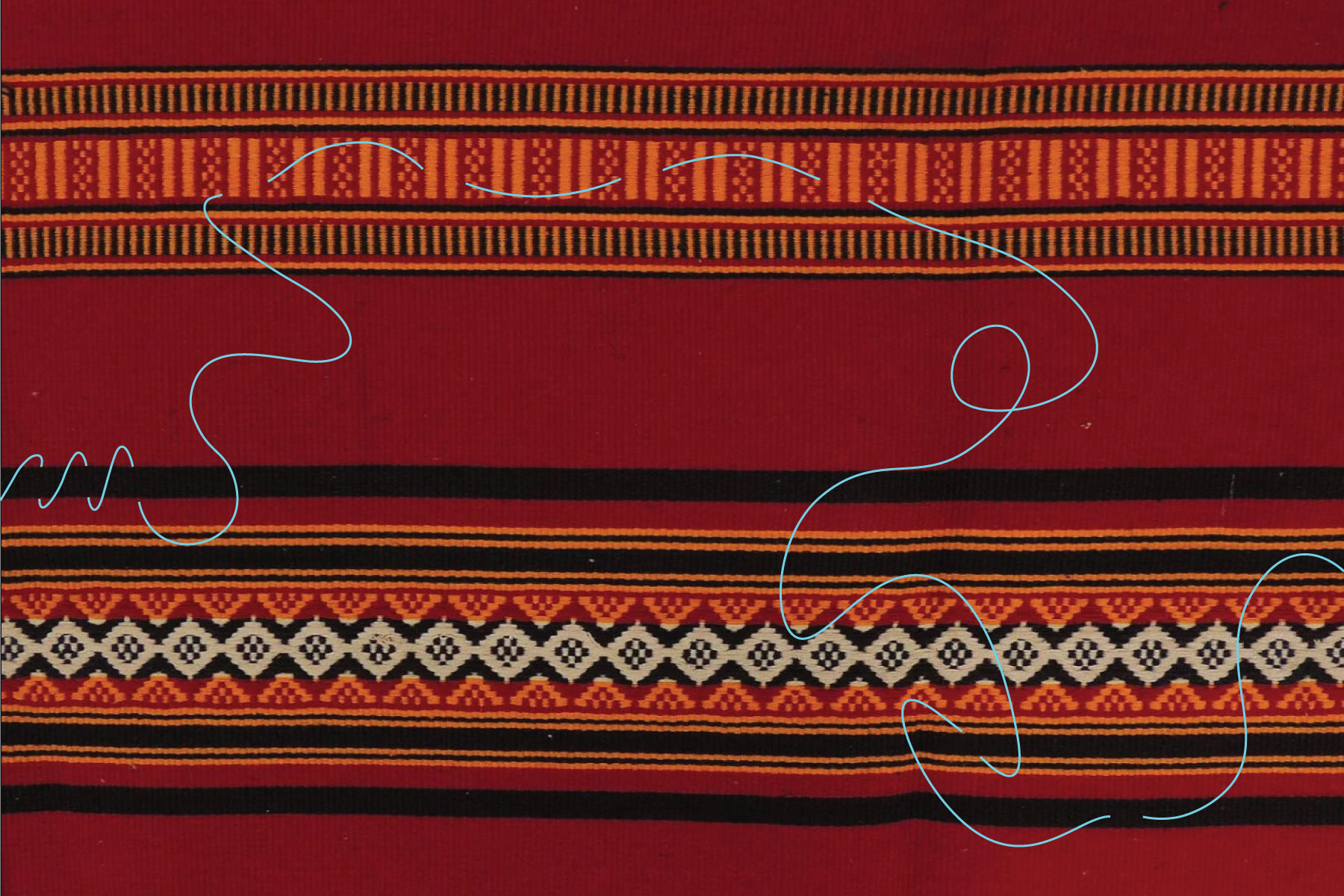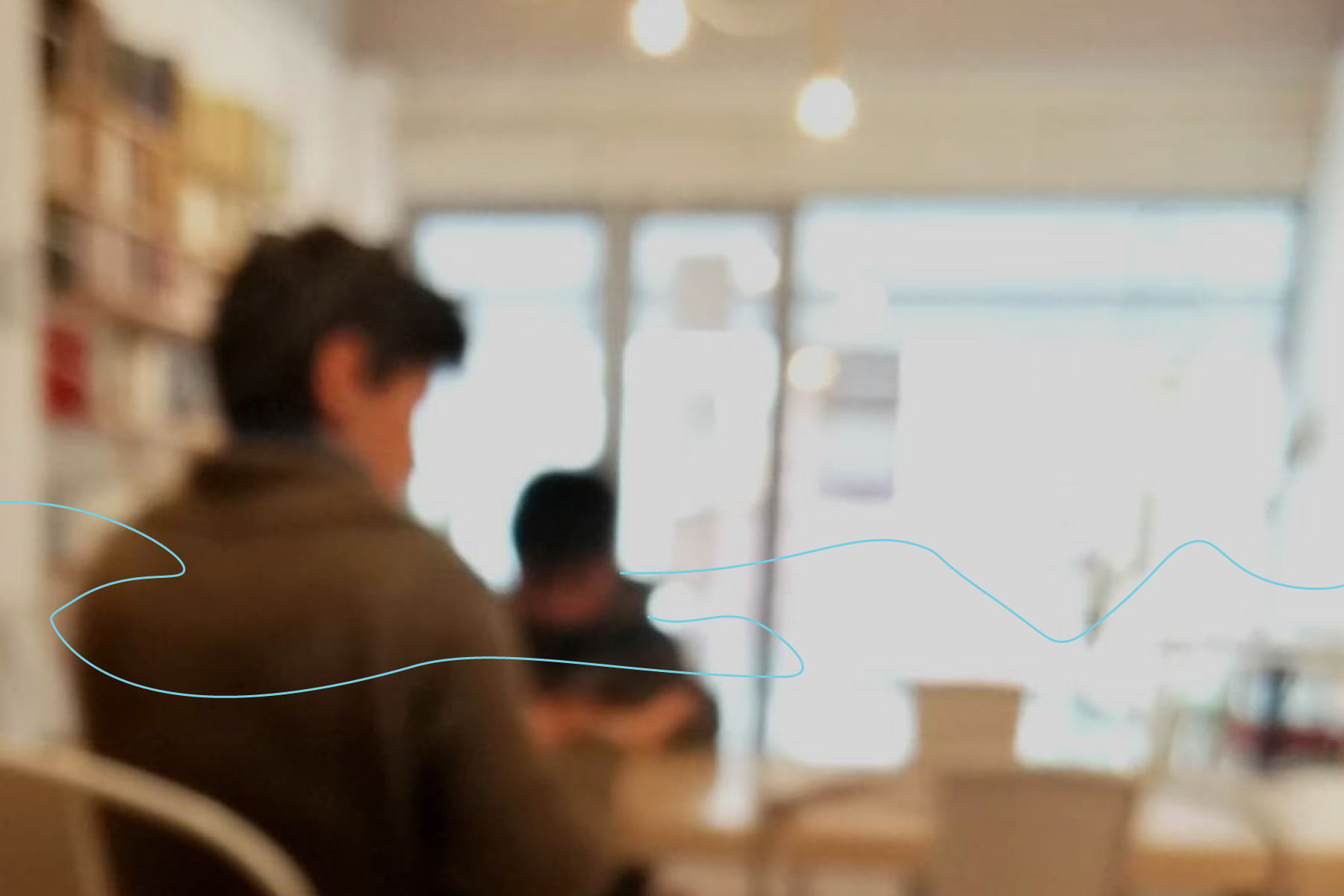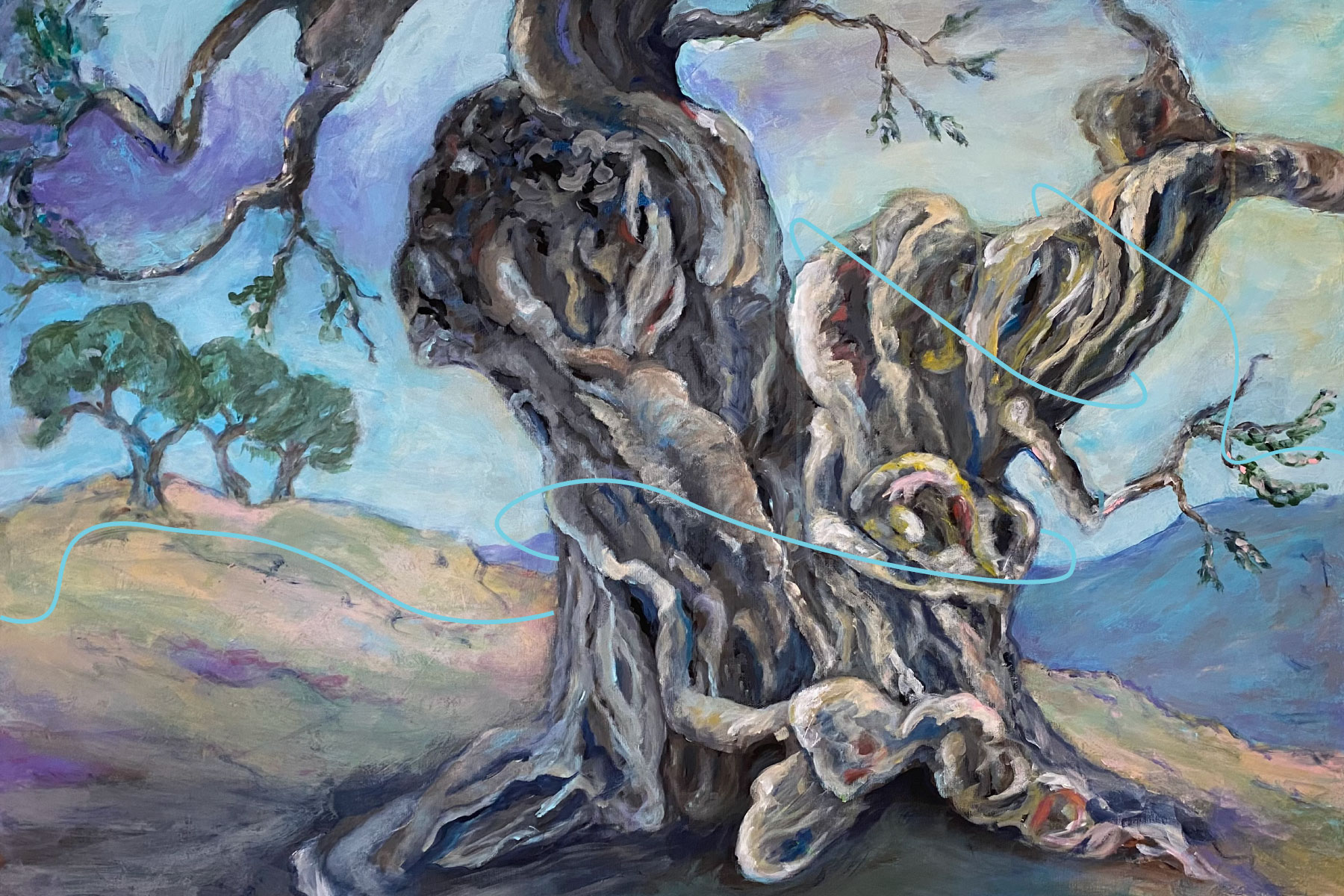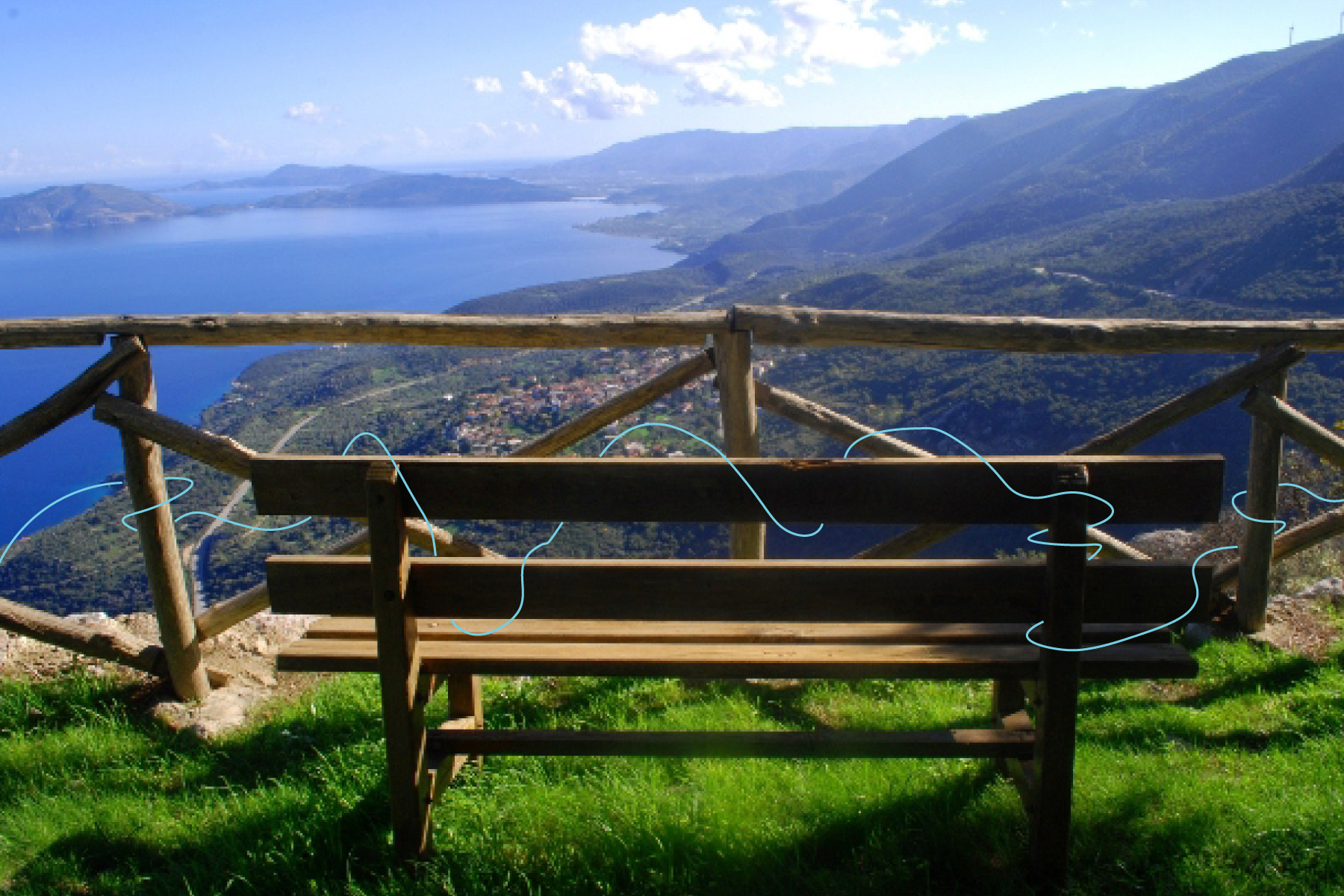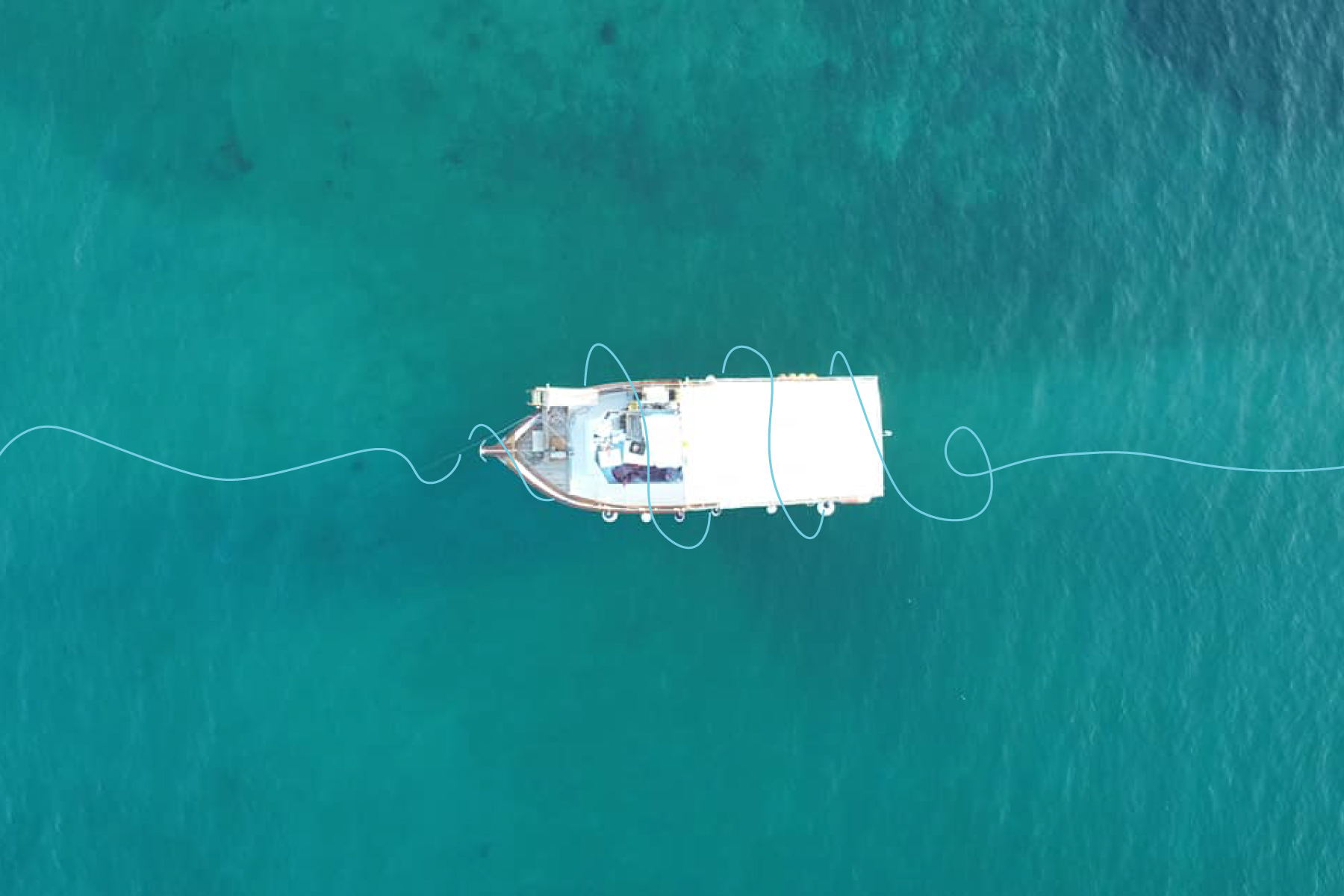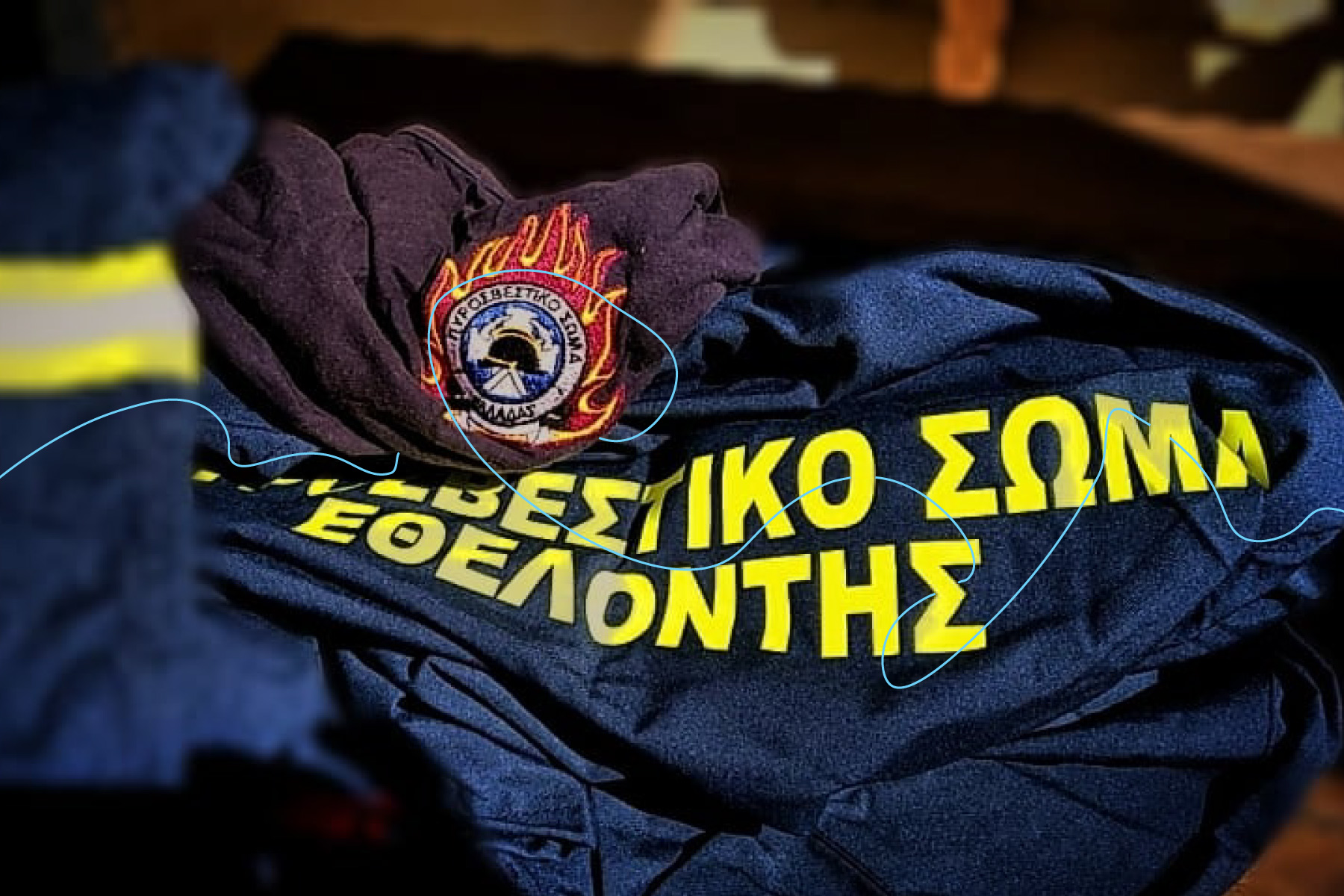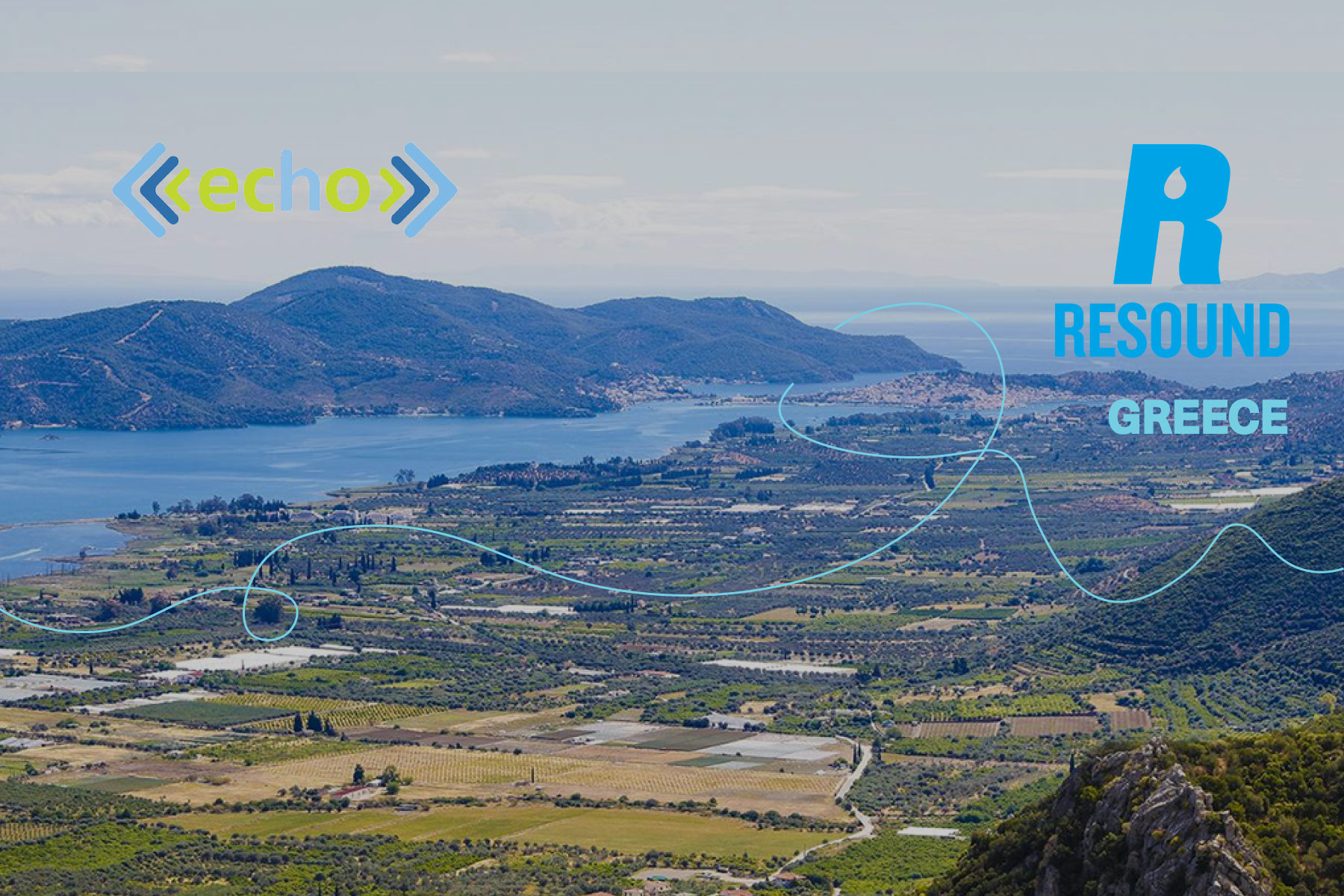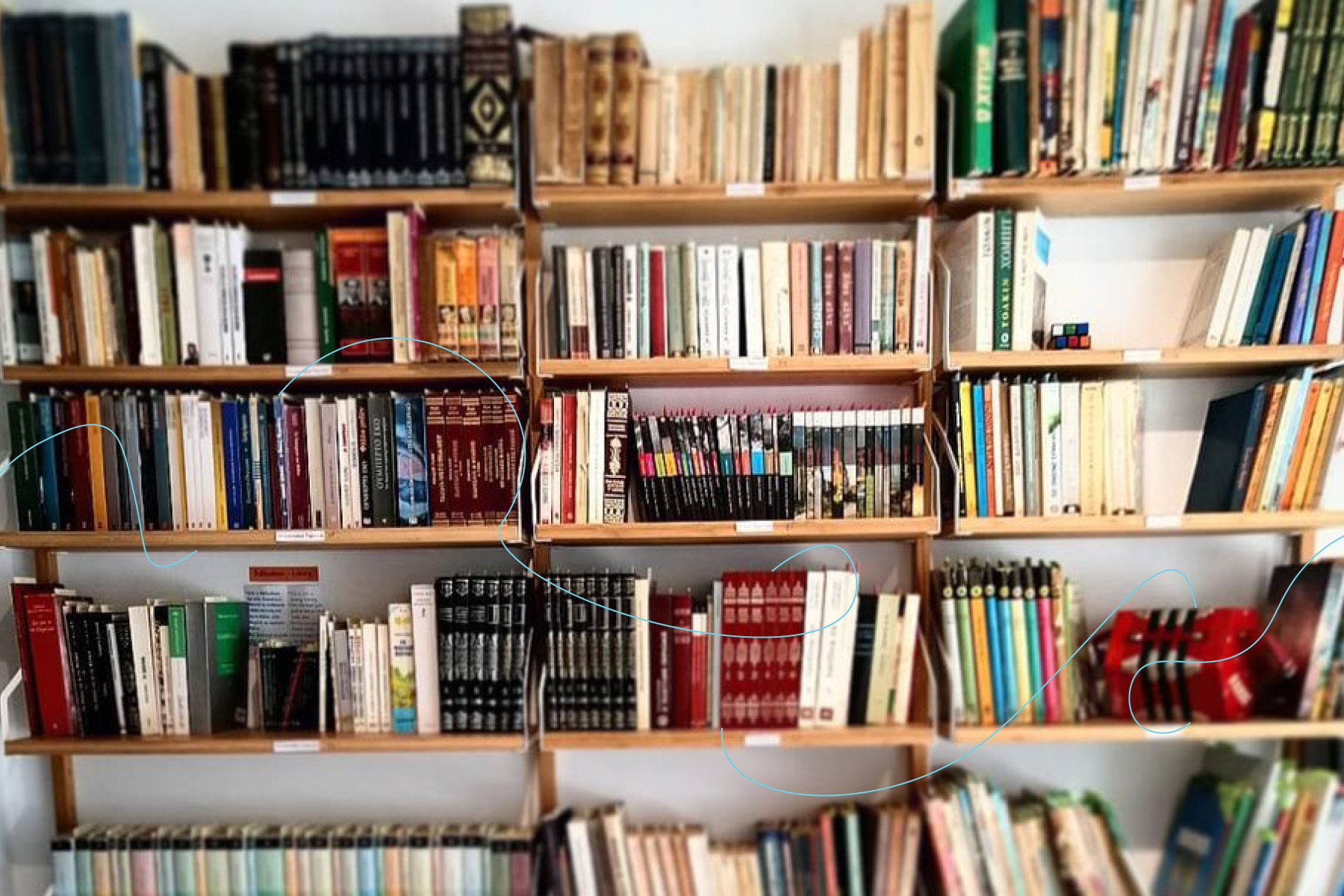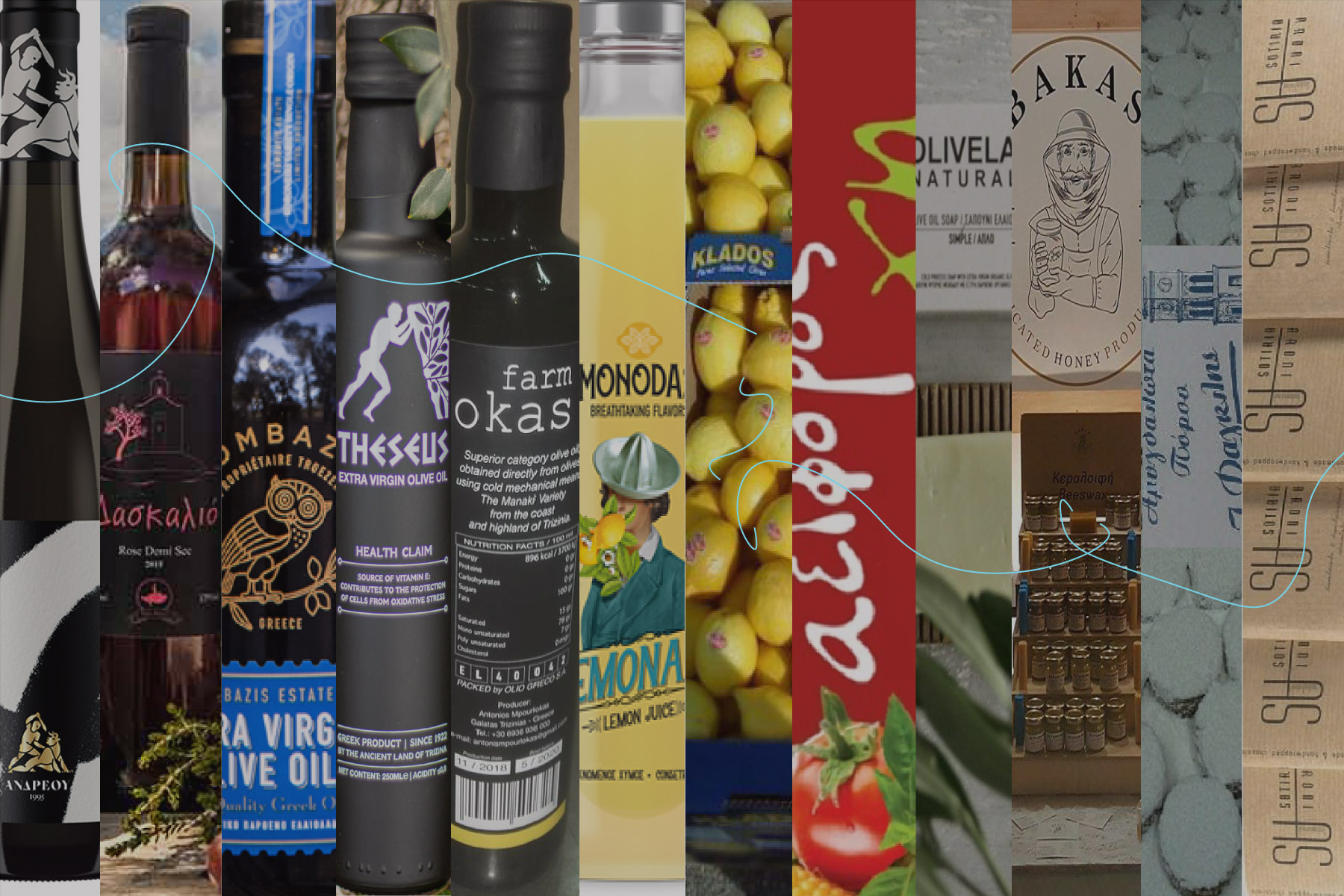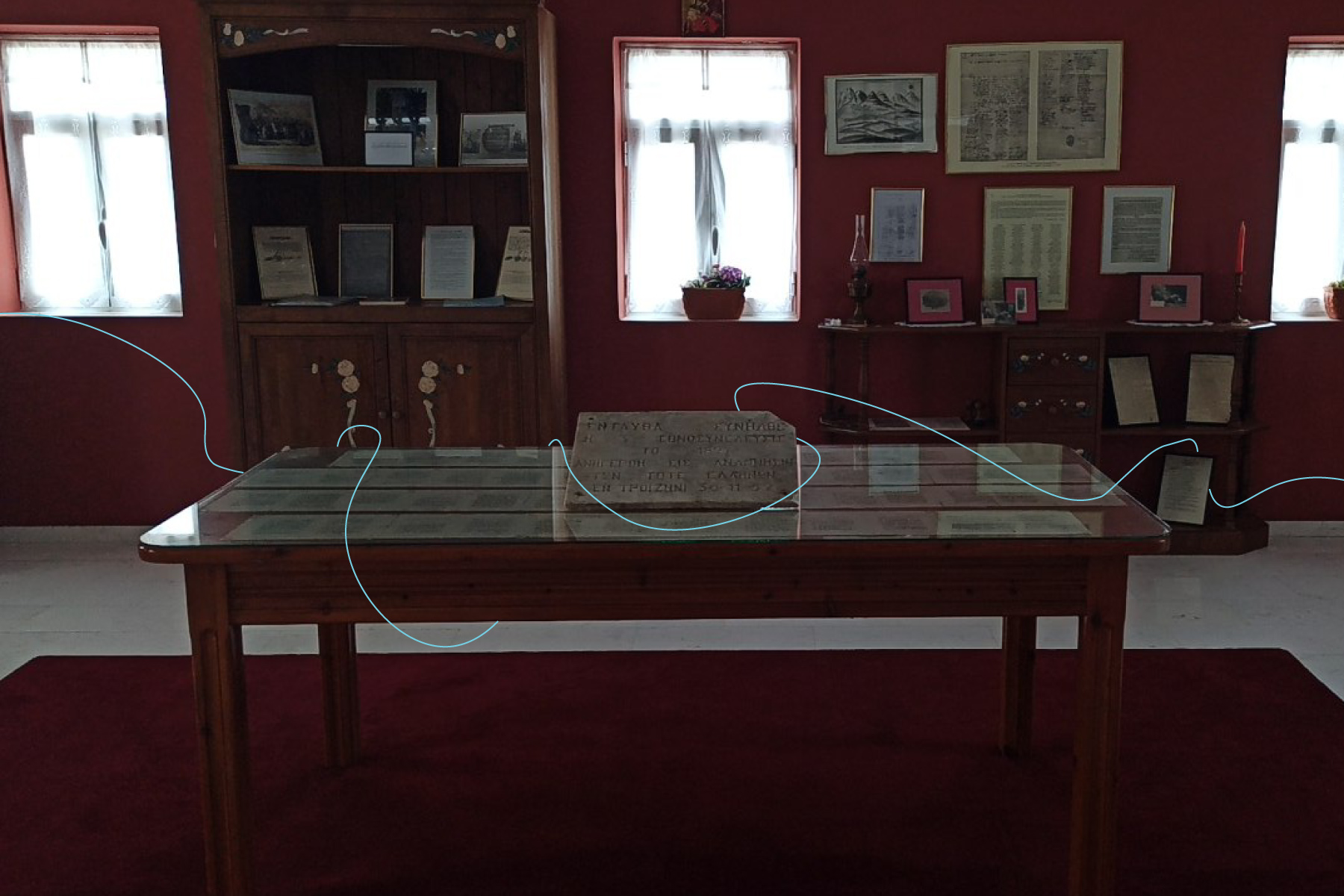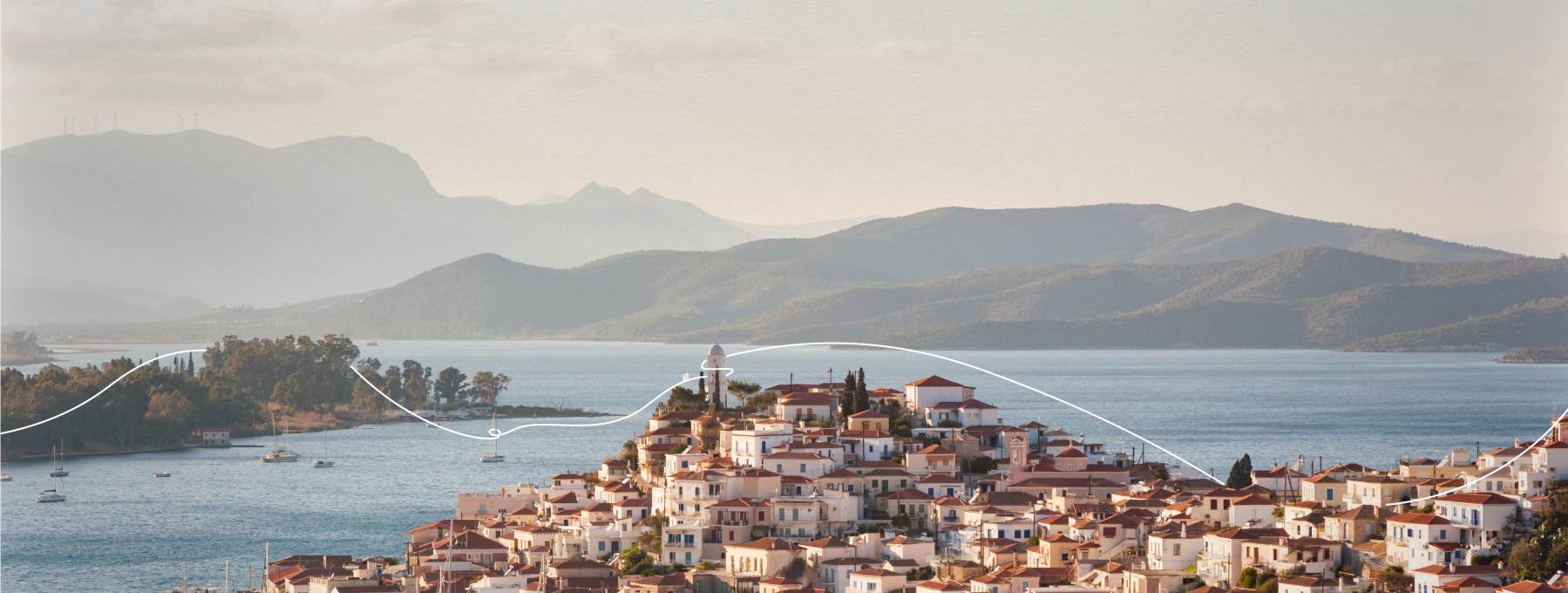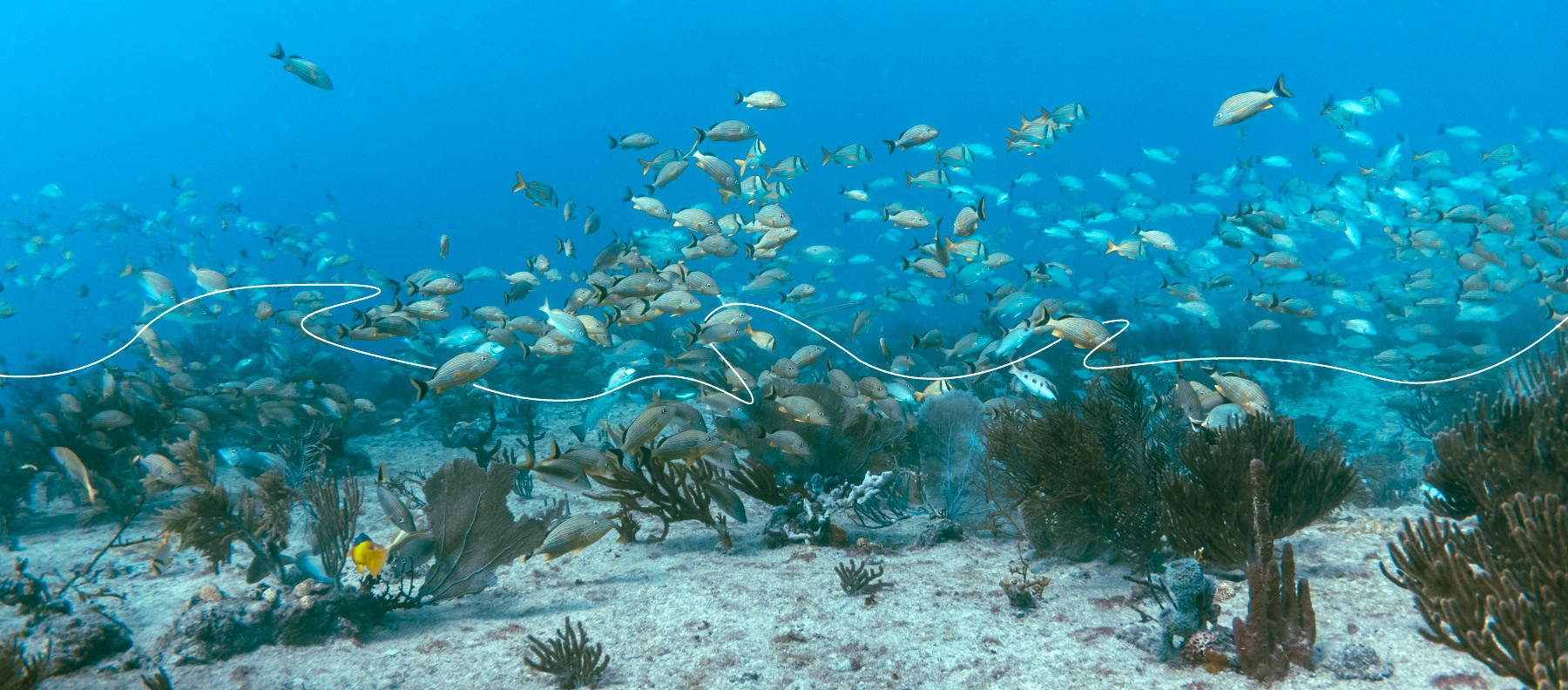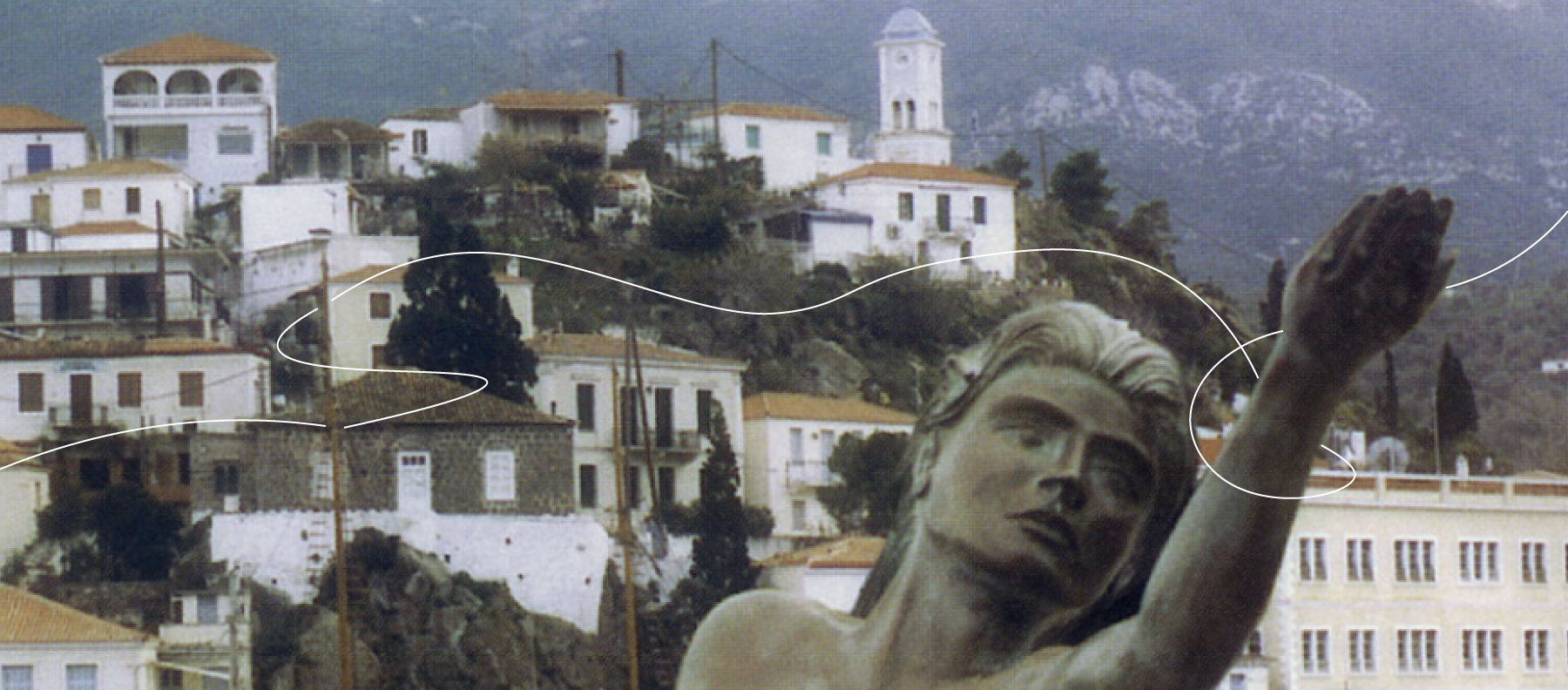Maria Pateraki is a computer science teacher since 2004, appointed to Galatas Junior High School since 2008. She is the coordinator of the “Conflict Management through Peer Mediation” program since 2019, at Galatas Junior High School. She is also the owner and administrator of the “School Peer Mediation” website, that provides information and educational material on peer mediation in Greek. She was the coordinator of the Thematic Week program and has translated and designed educational materials relevant to gender identities which have been approved by the Ministry of Education and the Institute of Educational Policy.
She has received trainings on Children’s Rights and Childhood, Bullying and Sex Education through programs of Greek universities. On a voluntary basis, she translates lesson plans and information for parents/guardians on sex education into Greek, from relevant websites. She has participated in the European program “Gender Equality Matters”, about teachers’ and children’s training on gender-based violence issues.
She is instructor in the “Internet Safety” seminar organized by Katheti. Maria Pateraki talks to us about her work and education.
Tell us about your work.
I teach subjects related to computer science and computer use at Galatas Junior High School and at other local schools. I have always been interested in education and this is the reason why my job has been a conscious choice.
What is your relationship with the local area?
I do not come from this area. I first came here 13 years ago, when I was hired at a local school. I have always been keen on living in the countryside because it suits me better than a city. After all those years that I have been here, I feel this place to be an integral part of my life and I always admire its natural beauty.
How has crisis affected your work and your life and how do you deal with it?
At a personal level, I didn’t need to make any significant changes because of the economic crisis. I think I adapted easily to that. On the other hand, fund inflow for education was remarkably reduced and this has had unpleasant consequences. Thus, we have to deal with building issues and lack of equipment and means which would facilitate education as a whole. When it comes to my teaching subject, I try to do my best with the means available at school and I always try to maintain the equipment in a functional condition. At the beginning of each school year, I take enough care to inform kids about the lack of equipment and I encourage them to use the materials properly. Kids understand and they try to do their best, too.
Which of your knowledge and personality traits have been most useful to you in your professional life?
My knowledge is limited to my teaching subject. My pedagogical background is based on the training courses I try to attend, as well as on the people-centered values which represent me. If we want a better society, we should trust and empower children and young people; we should provide them with different experiences, teach them step-by-step how to be responsible for themselves, and treat them equally. We should provide them with the opportunity to understand that they are members of the same society like us, adults, in order to let them become able to be the change they would like to see in this very society. I try to communicate these feelings in a fruitful way both for the kids and me, even when I get angry or disappointed. As an educator, it is always important to me to believe in future generations and to trust young people.
Concerning my teaching subject, my constant contact with internet’s reality and the issues that emerge through its development sensitize me to give great emphasis to its responsible use by children. Without demonization and idealization, we look at how we can all become responsible digital citizens.
Is there an aspect of your personality or anything related to how you work that would like to improve? What are your weaknesses and how have they influenced you?
I would very much like to look at the future of education and consequently, the future of the Greek society, in a more optimistic way. When it comes to my job, I would like to succeed in acquiring more pedagogical knowledge and tools so as to be more efficient in managing day-to-day issues.
Is there anything you would do differently? What do you consider as a right step in your career?
I am not sure that there is the opportunity for somebody to do things differently in public education. It is a field which is controlled by a firm set of rules and there is no flexibility. For instance, if a teacher wishes to talk about social or environmental issues in their lesson, they will have to connect these issues with their teaching subject – this is not something any teacher can do. There is only one thing I am fairly sure I have properly done this is the fact that I have never stopped believing that we can do something better and I have worked for that.
What piece of advice would you give to a young person who would like to do what you do?
Maybe deeply explore their motivation in the first place and the reasons why they would like to work in education. It has been supported that working in education is easy and relaxing, as there are many breaks. This can be a motive itself for some people. However, I am of the opinion that daily life in a class and the responsibilities the teachers bear are factors a person should take into account.
What are your plans for the future, short-term and long-term ones?
In this school year, we are going to try and introduce Peer Mediation in Galatas Junior High School through the Health Education program approved by the Institute of Educational Policy. Peer Mediation is the way in which students can resolve their everyday conflicts in a peaceful and not punitive manner. Students have the option to come to an agreement on their own, only with the guidance of their trained classmates and without any adult intervening. Thus, they gradually develop good listening skills, they learn how to be objective, they acquire communication skills and they strengthen their empathy. These skills become an integral part of their personality and turn out to be useful in their social life in general and later, in their career. Last school year, Katheti gave the opportunity to both teachers and students from the local area to attend free training seminars on Peer Mediation. Eleven students who study at Galatas Junior High School were trained on Peer Mediation, along with two substitute teachers who will not be able to join our common effort due to their being transferred to other schools. Both the students and I strongly support developing this culture to resolve disputes and simple conflicts and we hope it gets established in the long run.
n addition, after being scientifically and adequately trained, I would like to undertake Comprehensive Sex Education programs in the school where I belong. These programs are also taught as part of the Health Education programs, they are designed based on the UNESCO technical guide and they can offer young people knowledge and skills so that they can develop healthy sexuality and be able to make responsible decisions for themselves and others.
Why is it important to apply peer mediation in your school?
It is useful to any individual to be able to solve a problem on their own, to recognize and take responsibility of their actions and of what they say. If there is no one to teach us this skill and if we do not have the opportunity to practice it, we keep on turning to known and tested practices. In other words, we avoid taking responsibility, we use an aggressive, humiliating, and offensive tone or we become physically violent. Therefore, we do not learn to get in touch with our feelings and as we grow up we may feel being mistreated or angry all the time. When we learn to listen to how others feel, to express our feelings and to respect the rules of having a dialogue, we become better listeners, we develop empathy and we get rid of our own negativity. We learn how to take enough care in finding a solution that will enable all of us to coexist without necessarily being friends. This is true both for kids and adults. The tools provided to underage and adult persons through peer mediation are tools we can use in our daily life in many different contexts, like in our family, social or professional life. Apart from academic qualifications, getting hired in today’s world requires more skills; being a young mediator at school can be a skill one can include in their CV.
Mediation can help resolving any issue apart from bullying or racist and gender violence incidents. Mediation mostly deals with everyday disagreements and misunderstandings among students. It is important to clarify that the existence of a peer mediation program at a school does not mean that students are obliged to take advantage of it: this should happen only when students want it to happen and in case they believe it is the best answer to their problem.
What have you learnt through your work in peer mediation?
I would like to point out what I believe is the core of all this process: the will to resolve a conflict in the best possible way. It sounds so simple, but in fact it takes work, maturity and responsibility. We say that we care and that we want to help many times, but this is something each one of us perceives in their own way. This results in each person contributing with their own solution, trying to persuade others that this is the right solution for them, too. Mediation teaches us to care and give others space to find their own solutions to their problems or a strategy they will commonly decide it will work well with them. Having discovered this, I try to better control the way I contribute to solving the problems others face.
Short bio
Maria Pateraki has been working as an educator since 2005 and since 2016 she has been the coordinator of the Thematic Week Programme at the Junior High School of Galatas. In the first year of the introduction of the Thematic Week at schools, she organised a training seminar for parents and guardians in relation to the Addictions and Gender Identities sections of the Thematic Week in collaboration with the Parents and Guardians Association. She has translated and designed educational materials relevant to gender identities which have been approved by the Ministry of Education and the Institute of Educational Policy.
